What is resilience?
Resilience is the ability to adapt to and overcome challenges and difficult life events. It’s a skill that can be nurtured and developed over time. Signs of resilience include regulating emotions, feeling confident and in control and using effective coping skills. At Over The Wall Camp, we provide free-of-charge residential activity camps for children and young people with long-term conditions or disability and their families, helping them develop skills like resilience in the face of often complex medical challenges.
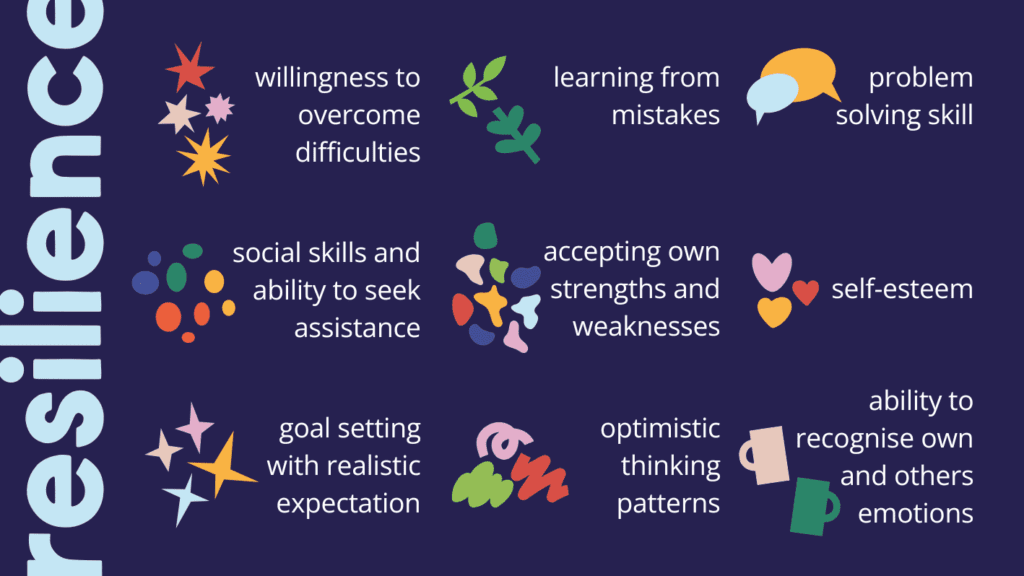
How can resilience help children and young people affected by long-term health conditions?
Many things are happening around the world and in our lives that we have little control over. Developing resilience can help children and young people with long-term health conditions or disability cope with medical challenges, build confidence in social situations and healthily process emotions. We can develop emotional resilience by learning coping skills and building confidence to help us face our challenges. One in five children and young people between the ages of eight and 25 in England are now thought to have a mental health disorder. Equipping children and young people with ways to build their resilience may improve overall mental health and social and physical well-being.
How do Over The Wall Camps build resilience?
At Over The Wall Camp, our camp values are Belonging, Authenticity and Growth. These values embody everything we do at camp, from providing a safe space for campers to be themselves to encouraging campers to step out of their comfort zones. The camp environment we (and our volunteers) create helps campers develop confidence, hope and resilience. Our free camps are specifically designed for children and young people with long-term health conditions and the unique problems they may face, giving them the opportunity to rediscover the magic of childhood. Let’s look at the specific opportunities to develop resilience at camp:
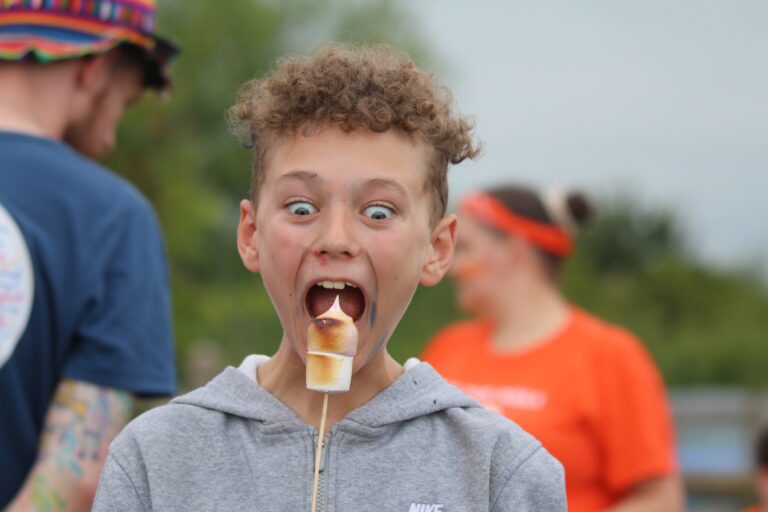
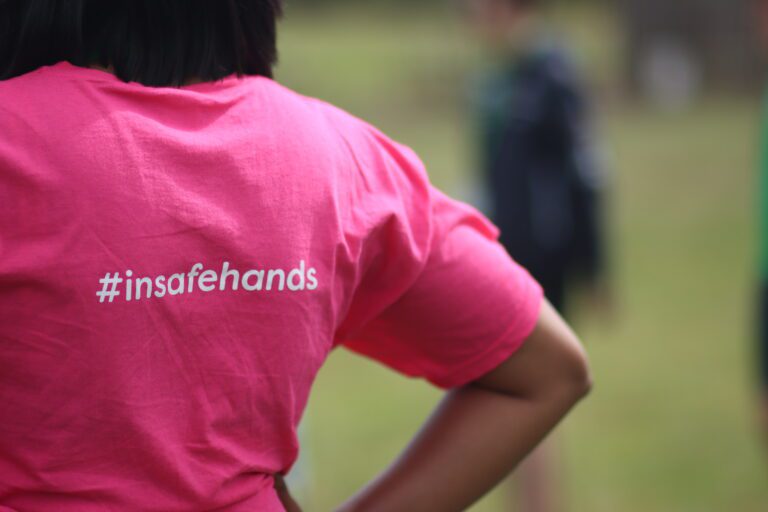

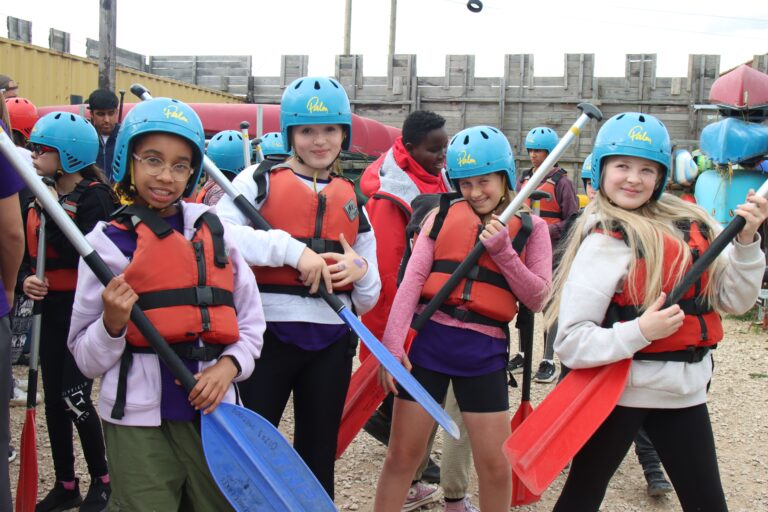
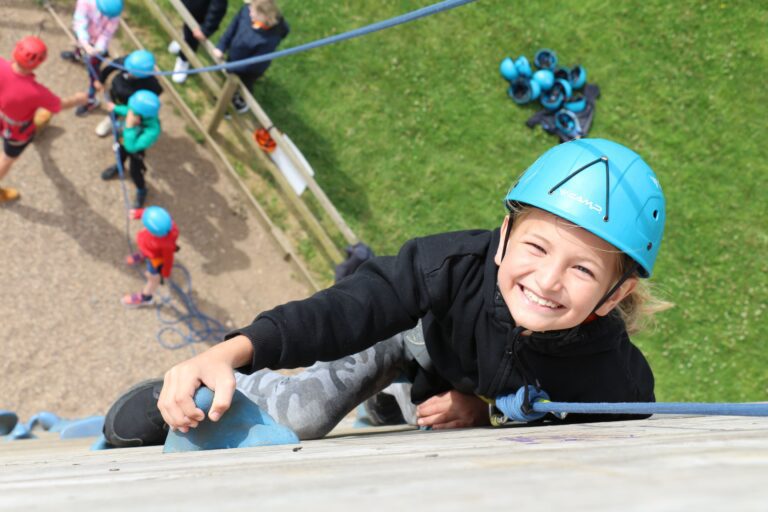
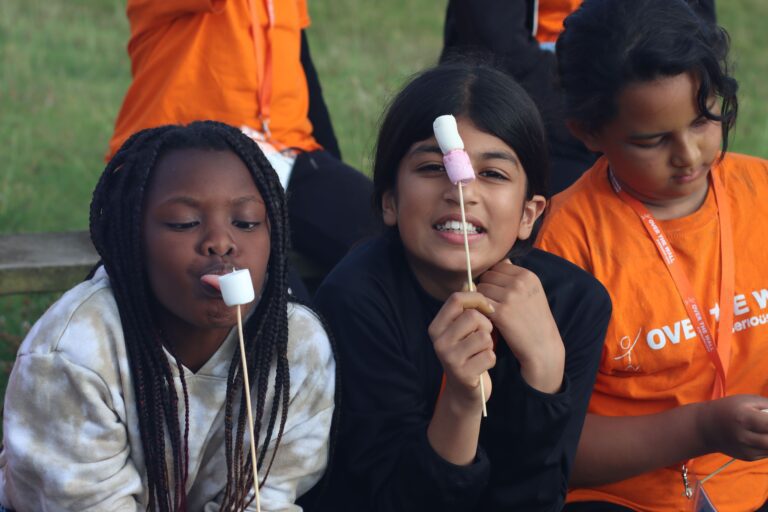
Belonging: finding friendship and support
Camp is often the first opportunity for campers to make friends who face similar challenges. The children and young people who come to camp may experience life-long illness or spend much of their childhood in hospital. They might miss school regularly and feel isolated from their peers who face different challenges. Their siblings who come to camp may meet other siblings for the first time who know what it’s like to be a young carer. For both groups, building friendships at camp invites a sense of belonging and connection, therefore developing resilience by supporting one another, achieving goals, and overcoming setbacks together.
Optimism: the power of fun, mischief and positivity
Camp can bring something to look forward to during difficult times. Like booking a holiday, camp can give children and young people (and their families) something to anticipate. At camp, there are always lots of fun activities, songs and dance parties to keep campers engaged and excited. This positive atmosphere – or the ‘mischief and magic’ of camp – means campers will be surrounded by joy and laughter. In 2024, 92% of campers reported feeling happier* after going to camp. Environments like camp can increase optimism and feel-good endorphins, strengthening emotional resilience by reducing the intensity of negative emotions like fear and sadness.
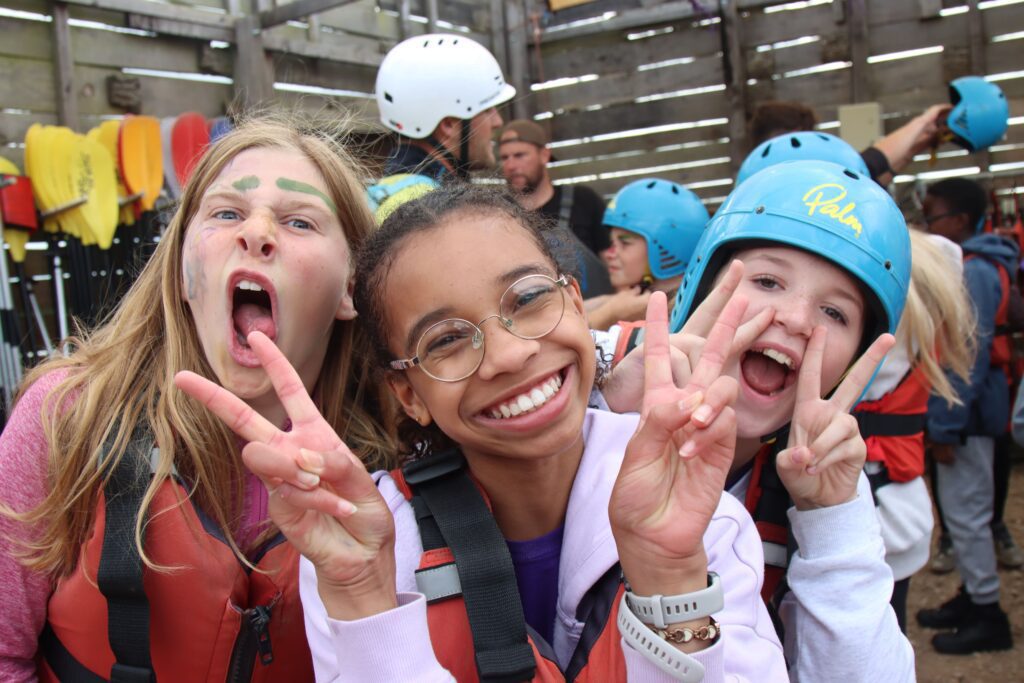
Authenticity: developing independence and identity beyond illness
For many campers, coming to camp may be their first time away from home. Our residential camps allow them to immerse themselves in our activities, dance parties and cabin chats. They can rediscover the magic of childhood and learn more about themselves in an environment very different to the hospitals and treatment rooms they may be used to. With our clinical team on hand at all times, campers feel safe expressing themselves and participating in activities, knowing that everyone at camp is there to support them and address medical needs where necessary. This helps campers step outside their comfort zone and develop their independence by navigating fun social situations independently. Campers often return feeling less like their illness defines them and more confident in supporting themselves day-to-day.
Growth: expanding comfort zones to build resilience
At camp, we encourage every camper to try something new. Our Therapeutic Recreation model allows campers to push old boundaries in a safe, supportive environment. From comfort zone to stretch zone, we encourage campers to ‘expand their bubble’ through inclusive activities. For example, camp helped one camper realise she was “capable of doing more”. Campers start believing in their own abilities and develop an ‘I can do this’ attitude. They leave camp feeling more confident, which helps foster persistence. When you believe in your abilities, you are more likely to keep trying despite setbacks. This is what resilience looks like!
Problem-solving: overcoming challenges with confidence
Practising fun and small problem-solving skills in a safe, encouraging environment such as camp can help campers find different ways to overcome a challenge. Strengthening these skills in a fun, relaxed and stress-free way makes them easier to use when faced with a challenging problem outside of camp. Examples of problem-solving at camp include activities like an escape room and climbing!
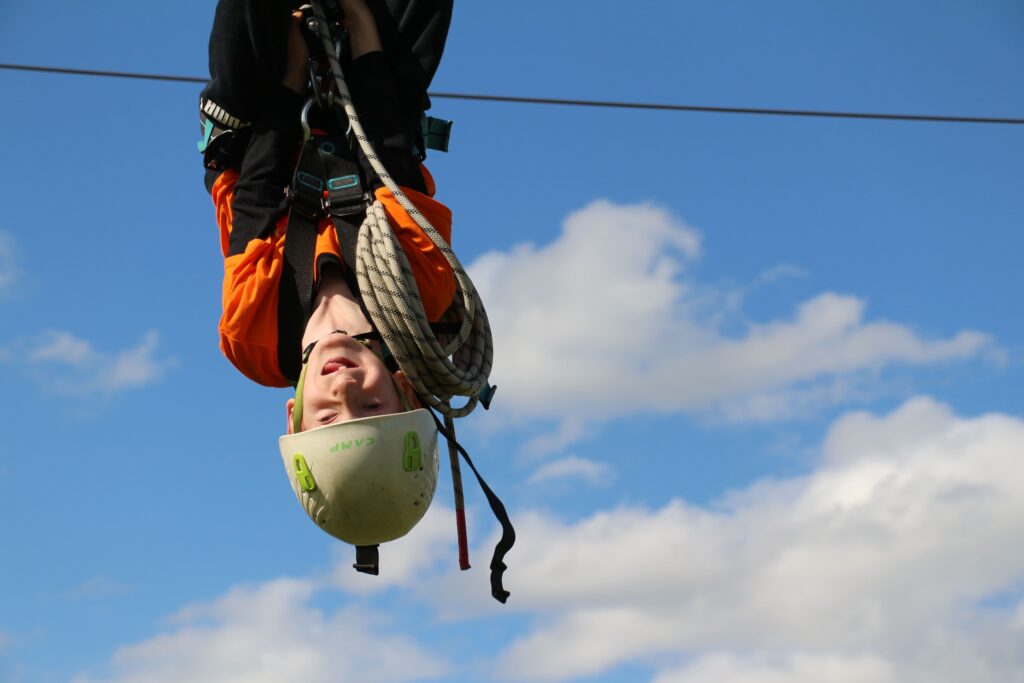
The lasting impact of resilience
At Over The Wall Camp, our camp values—Belonging, Authenticity, and Growth—help campers develop resilience in a supportive and joyful environment. Camp is more than just fun; it’s an opportunity for children and young people to push boundaries, make meaningful connections, and embrace their identities while rediscovering the mischief and magic of childhood. By developing resilience, children and young people with long-term health conditions and disability and their siblings can strengthen their emotional well-being and face life’s challenges with confidence.
